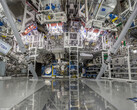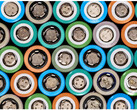There have been some glaring failures in the technology industry in 2023. The MIT Technology Review listed some of the biggest disappointments:
Titan
On June 22, 2023, the deep-sea submersible Titan, owned by OceanGate, sank while en route to the Titanic wreck. Unfortunately, all five occupants, including a Titanic expert, lost their lives. It is believed that the carbon fiber boat was not designed to withstand the pressure at that depth, and it may have been damaged by an unknown object. Before Titan's descent, Aerospace engineer Stockton Rush, director of OceanGate, was warned that the submarine was unlikely to withstand the pressure. Rush replied:
I think it was General MacArthur who said ‘You’re remembered for the rules you break.`
“I’ve broken some rules to make this…”
— John Holowesko (@jholowesko) June 21, 2023
Confidence inducing stuff from #titan CEO #Titanic pic.twitter.com/JXLdQNqbM0
Cruise robotaxi
Cruise, a subsidiary of General Motors, temporarily suspended its robotaxi services in San Francisco due to several accidents that occurred with the vehicles. One incident involved a collision with another vehicle, while another resulted in a Cruise vehicle running over a pedestrian.
Despite previously advertising its fleet of 400 cars by claiming that "humans are terrible drivers", Cruise's robotaxis are equipped with a range of sensors, including LiDAR, cameras, and radar. These sensors are intended to enable vehicles to recognize their surroundings and navigate safely. However, due to accidents, the California DMV has deemed robotaxis an unreasonable risk to public safety.
Increase in plastics
The production of plastic has caused significant environmental pollution, with microplastics being found in almost all habitats, including the blood of humans and animals. Despite the annual production of approximately 430 million tons of plastic, only a fraction is recycled.
To address this issue, there are various initiatives aimed at reducing the production and use of plastics, such as the use of recycled plastic and the development of new materials to replace it. However, the consensus of experts is that the best approach is to avoid plastic as much as possible.
Humane Ai Pin
Humane AI Pin is a new wearable device designed to reduce our dependence on smartphones. It enables us to send messages, make phone calls, and interact with artificial intelligence.
Former Apple designers Imran Chaudhri and Bethany Bongiorno developed the device as a kind of iPhone for a new era. The company has raised $240 million in investment. However, the device is currently not successful due to its high cost and usability issues, as noted by some technology experts. For instance, it lacks a display, is too heavy, and is incompatible with many common applications.
I tried out Humane's long-awaited new AI pin. While there are some undoubtedly novel new features in its interfaces, I think "AI hardware" may turn out to be a dead endhttps://t.co/zB2taCCmZ6
— Casey Newton (@CaseyNewton) November 10, 2023
Solar Geoengineering
Solar geoengineering is a climate technology that involves releasing materials into the air to reflect sunlight back into space, cooling the atmosphere. However, it is important to note that this method would only alleviate the symptoms of climate change and not address its root causes. For instance, Mexico has banned geoengineering after the start-up MakeSunsets attempted to commercialize the release of reflective sulfur dioxide into the atmosphere. "They’re violating the rights of communities to dictate their own future," criticized one person. Luke Iseman, co-founder of MakeSunset, has a different perspective on the matter:
I don’t poll billions before taking a flight. I’m not going to ask for permission from every person in the world before I try to do a bit to cool Earth.
Unless humanity reduces greenhouse gas emissions, the Earth will continue to warm. A study published in the journal Earth System Dynamics shows that even if climate targets are met, geoengineering would be needed for at least a century to keep global temperature rise below 1.5°C. However, the environmental risks are uncertain because the reflective material, once released into the air, cannot be removed and alters the composition of the atmosphere. This, in turn, could affect the habitats of humans, plants, and animals.
Superconductors on social media
The supposed wonder material LK-99, hyped as a room-temperature superconductor, has turned out to be a failure. The promised properties, which included potential uses in new batteries, quantum computers, and nuclear fusion, could not be confirmed. This serves as a reminder that not everything hyped up on social media corresponds to reality.
Quelle(n)
MIT Technology Review | symbolic image: Bing AI


 Deutsch
Deutsch English
English Español
Español Français
Français Italiano
Italiano Nederlands
Nederlands Polski
Polski Português
Português Русский
Русский Türkçe
Türkçe Svenska
Svenska Chinese
Chinese Magyar
Magyar














